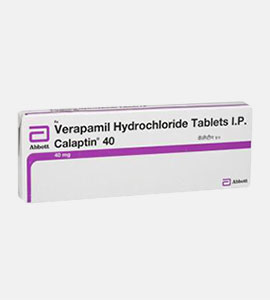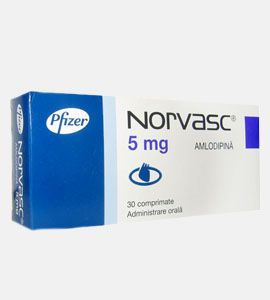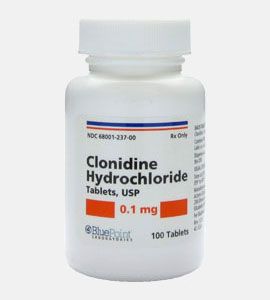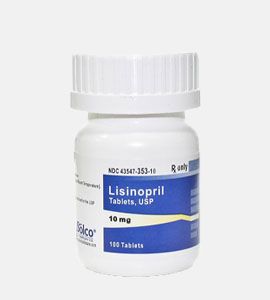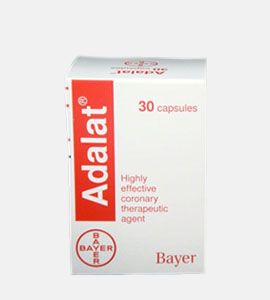
* For illustration purpose only
Adalat (Nifedipine)

In Stock

* Prices in the list do not apply to Switzerland, Sweden and Denmark. Customers are advised to place an order, and our team will contact back with updated prices.

Last purchase: 26 minutes ago
There are 17 users looking at this product right now
Adalat (Calcium Channel Blocker)
Common use:
The medication belongs to a class of drugs called calcium channel blockers and decreases trans-membrane calcium ion flux through calcium channels to the myocardiocytes and smooth muscle cells of coronary and peripheral vessels and arteries. Adalat widens coronary arteries during coronary spasm and influences vessel segments in areas of partial stenosis. It prevents coronary spasm by decreasing the tone of smooth muscles in coronary arteries, increases coronary perfusion, and improves oxygen supply to the myocardium. This facilitates blood pumping and reduces heart workload. Adalat is used for hypertension (high blood pressure) and to treat angina.
Dosage and direction:
The common dose for Adalat capsules is 10 to 20 mg three times daily. Swallow capsules whole. Extended-release tablets should be taken once a day, with a usual daily dose of 30 or 60 mg, and can be increased up to 120 mg if necessary. Swallow tablets whole; do not crush or cut. Adalat can be taken with food. For rapid relief of hypertensive crisis, a single dose of 10 mg may be taken, with another dose in 30 minutes if needed.
Precautions:
Adalat is in the FDA pregnancy category C. If over 65 years old, consult your doctor for possible lower dosage. Avoid grapefruit and grapefruit juice as they can increase medication levels in the blood.
Contraindications:
Consult a doctor before use if you have allergy to Adalat, are pregnant or breastfeeding, have cardiogenic shock, are taking Rifampicin, have acute hypotension, or have had ileostomy after proctocolectomy; also if under 18 years old. Use with caution in cases of cardiac insufficiency, severe aortic stenosis, acute myocardial infarction with left ventricular failure, hepatic failure, cerebrovascular disorders, hypovolaemia, and malignant arterial hypertension.
Possible side effects:
Severe reactions requiring immediate medical attention include allergy, unusually fast or slow heartbeats, severe dizziness or fainting, psychosis, jaundice, and oedema of legs or ankles. Less serious effects include headache, fatigue, flushing, insomnia, vivid or abnormal dreams, nausea, constipation, and increased urination, which may worsen with alcohol.
Drug interaction:
Rarely, Adalat has been associated with congestive heart failure, especially in patients on beta-blockers. Hypotension may occur, particularly with other blood pressure-lowering drugs. Nifedipine can increase digoxin toxicity.
Missed dose:
Never take a double dose. If it's almost time for the next dose, skip the missed dose and continue with the regular schedule.
Overdose:
If an overdose is suspected, seek emergency medical attention. Symptoms may include dizziness, weakness, chest pain, difficulty breathing, fainting, unusually fast or slow heartbeat, coma, slurred speech, and confusion.
Storage:
Store tablets at 15-25°C (59-77°F) away from light, moisture, and humidity.

Medically reviewed by Dr. Josette Davignon
Last updated: 25.11.2024




